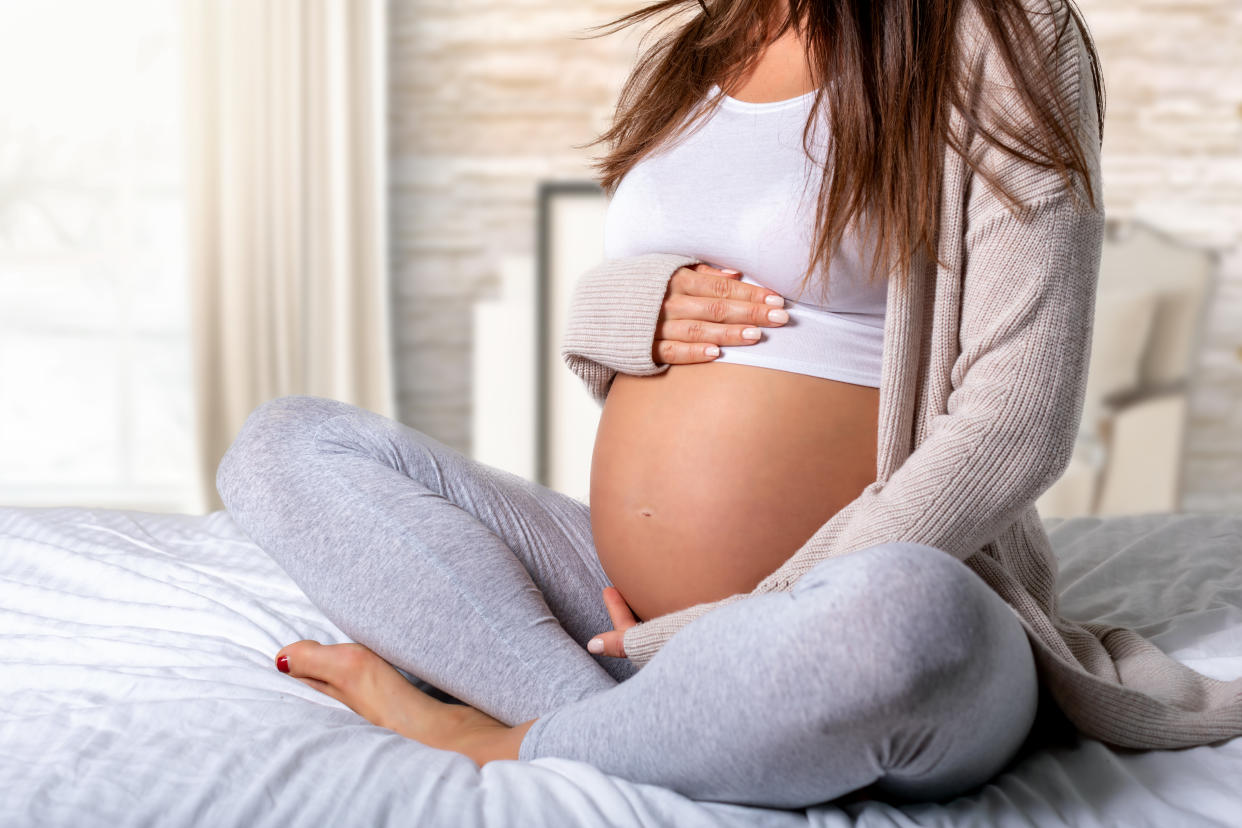Pregnant women are not at greater risk of severe coronavirus, research suggests

Pregnant women are not at higher risk of developing severe coronavirus symptoms, new research has suggested.
As the coronavirus outbreak developed in the UK, the government classed pregnant women in the “moderate risk” category, based on evidence that pregnant women can sometimes be more at risk to viruses like the flu.
The new study did note that the majority of pregnant women who fell severely ill were in the latter stages of their pregnancy, indicating that there’s still a need for pregnant women to follow stricter social-distancing rules.
Read more: How worried should we be able coronavirus mutations?
The study, by the Nuffield Department of Population Health at the University of Oxford, also noted that expectant mothers from black and other minority ethnic groups were more likely to be admitted to hospital with COVID-19.
This is in line with a study from the Office of National Statistics (ONS) that found black men and women in England and Wales were “twice as likely” to die from coronavirus as white people.
It also found that older women, those who were overweight or obese, and pregnant women with pre-existing conditions such as high blood pressure and diabetes were also more likely to be admitted to hospital as a result of the virus.
Latest coronavirus news, updates and advice
Live: Follow all the latest updates from the UK and around the world
Fact-checker: The number of COVID-19 cases in your local area
Explained: Symptoms, latest advice and how it compares to the flu
The Nuffield study looked at 427 pregnant women admitted to hospital in the UK with coronavirus between 1 March and 14 April.
All of these women had confirmed cases of COVID-19, which equates to 4.9 pregnant women out of every 1,000.
This information has led scientists to believe that pregnant women are not at a higher risk of developing severe coronavirus.
In order to be sure, the study excluded pregnant women from ethnic minorities from London, the West Midlands and the North West, areas known to have a higher rate of infection.
The scientists still found a higher rate of serious infection among these women, which indicates that the difference in serious contraction of the virus can’t be put down to higher rates of infection in certain areas.
The study also discovered that one in five babies born to mothers admitted to hospital with the virus were born premature and were admitted to a neonatal unit.
Despite this, fewer than 20 babies were born “very premature” – when a baby is less than 32 weeks pregnant.
Read more: Working from home may have unexpected foot benefits
With only one in 20 babies born to a mother with coronavirus testing positive themselves, this gave scientists an indication that the transmission of infection between mother and baby was low.
Only half of the one in 20 babies contracted the virus immediately after birth.
“A very small number of pregnant women do become severely ill with COVID-19 and sadly some women have died,” said Marian Knight at the Nuffield Department of Population Health.
“Our thoughts must remain with their families.
“It is concerning that more pregnant women from black and minority ethnic groups are admitted with COVID-19 in pregnancy and this needs urgent investigation.
“Most pregnant women who were admitted to hospital were more than six months pregnant, which emphasises the importance of continued social distancing measures in the later stages of pregnancy.
Read more: Post-pandemic baby boom unlikely, study finds
“Following the current guidance about careful social distancing will help prevent infection.”
60% of the women admitted to hospital have now given birth.
Most of the women from the study are now recovering at home, while one in 10 needed intensive care treatment and five sadly died.
“It’s absolutely vital that women continue to attend antenatal appointments to ensure that they and their babies are well,” said Gill Walton, chief executive of the Royal College of Midwives.
“Staying in touch with their maternity services team will help put any concerns at ease and enable them to act quickly when necessary.”
Information for the study was collected from all 194 hospitals in the UK with a consultant-led maternity unit.



